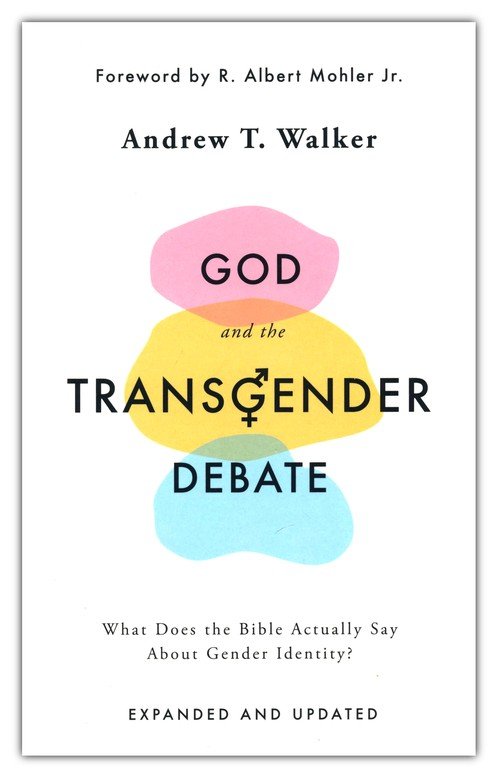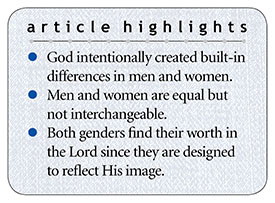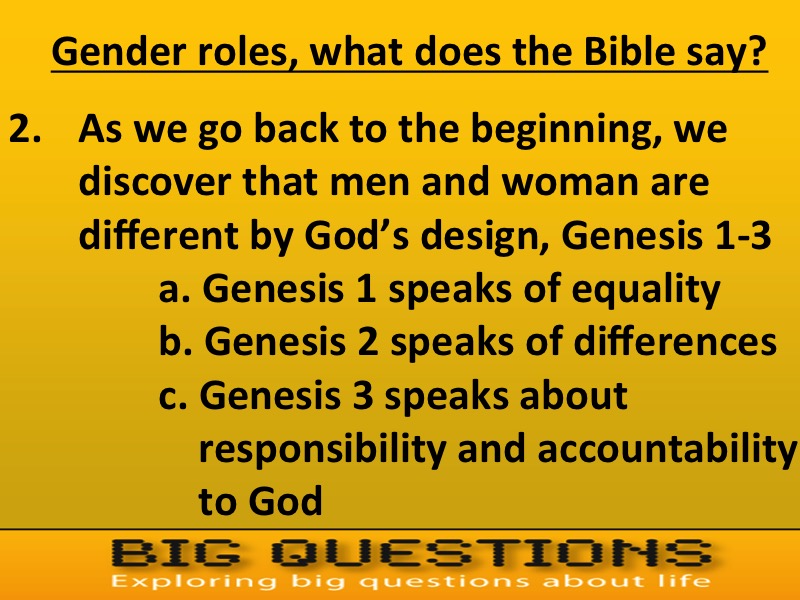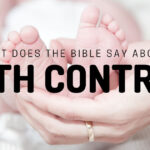What Does the Bible Say About Gender
The Bible states that God created human beings as male and female.

Credit: www.christianbook.com
Understanding Gender In The Bible
The Bible provides fundamental insight into the concept of gender, shaping the understanding of its nature and purpose.
The Biblical Definition Of Gender
In the Bible, gender refers to the state of being male or female. It is an integral part of God’s design for humanity and serves as a reflection of His divine intention. The Bible emphasizes the significance of gender in various contexts, shedding light on its purpose and importance in the lives of individuals.
God’s Creation Of Two Genders
According to the Bible, God created two distinct genders, male and female. This binary concept is underscored in the Book of Genesis, where God establishes the unique characteristics and roles of each gender. This foundational depiction of gender in the Bible provides a framework for understanding the divine intent behind human gender identity and relationships.
Gender Roles And Equality In The Bible
The Bible provides guidance on the topic of gender roles and equality. It presents the concept of gender complementarity, which asserts that God created two fundamentally different genders with specific societal roles. However, it also emphasizes the importance of equality between genders, both within the church and in societal interactions.
Gender Complementarity And Societal Roles
The Bible teaches that men and women have distinct roles and responsibilities in society. In Genesis, God created man and woman as distinct beings, each with unique qualities and strengths. For example, men are often depicted as providers and protectors, while women are seen as nurturers and caregivers. These roles complement one another and contribute to the overall harmony of society.
It is important to note that gender complementarity does not imply superiority or inferiority of one gender over the other. Both men and women are equally valued and important in God’s eyes. This biblical perspective highlights the importance of mutual respect and partnership between genders, rather than the dominance of one gender over the other.
Gender Equality In Church Leadership
The Bible also addresses the issue of gender equality in church leadership. While there are passages in the New Testament that suggest male leadership roles within the church, it is essential to interpret these passages within their cultural and historical context.
It is important to recognize that the Bible also presents examples of women in leadership positions. For instance, Deborah is described as a judge and a prophetess in the Old Testament, and several women in the New Testament are noted as leaders in early Christian communities. These examples indicate that women can play significant roles in ministry and leadership within the church.
The principle of gender equality in church leadership is reinforced by biblical teachings on the spiritual gifts and calling of believers. According to the apostle Paul, all believers are given spiritual gifts by the Holy Spirit, regardless of their gender. This implies that both men and women have the potential to lead and serve in various capacities within the church.
Addressing Transgenderism In The Bible
The Bible presents a traditional view of gender, with references to male and female roles. It emphasizes gender complementarity and does not explicitly address transgenderism. However, it offers guidance on understanding and respecting the uniqueness of each individual in the context of their God-given identity.
The Bible’s Stance On Transgender People
The Bible addresses the topic of transgenderism, but its stance may not be as straightforward as some people assume. While the Bible primarily recognizes only two genders, male and female, it does acknowledge individuals with diverse gender identities. As Christians, it is important to approach this topic with sensitivity and understanding. In Matthew 19:12, Jesus mentions eunuchs, who were individuals in biblical times that did not fit into the traditional gender categories of male or female. Jesus states, “For there are eunuchs who have been so from birth, and there are eunuchs who have been made eunuchs by men, and there are eunuchs who have made themselves eunuchs for the sake of the kingdom of heaven. Let the one who is able to receive this receive it.” This passage suggests that there is room within God’s kingdom for those who do not conform to traditional gender norms. Furthermore, some scholars argue that the creation story in Genesis can be interpreted as allowing for a more expansive understanding of gender. They suggest that God’s creation of humanity as both male and female, “in his own image,” may imply the existence of individuals who possess both masculine and feminine characteristics.The Limitations Of Gender In The Bible
It is important to note that the Bible was written within a specific cultural and historical context, and the understanding of gender may have been limited during that time. The concept of gender as we know it today, including transgender identities, was likely not fully understood or recognized. Additionally, biblical teachings regarding gender should be taken in context and interpreted with care. The cultural norms and societal expectations surrounding gender in biblical times may not align with the understanding of gender today. It is crucial to approach these teachings with an open mind and seek guidance from trusted spiritual leaders and scholars who can provide nuanced interpretations. In conclusion, while the Bible may primarily recognize two genders, it does acknowledge the existence of individuals who do not fit into traditional gender categories. Christians should strive to approach conversations about transgenderism with empathy, compassion, and a commitment to understanding. It is essential to rely on a comprehensive understanding of scriptural teachings and seek guidance from knowledgeable sources when exploring the Bible’s stance on gender diversity.
Credit: www.ogchurchofchrist.org

Credit: www.icr.org
Frequently Asked Questions Of What Does The Bible Say About Gender
What Did Jesus Say About Male And Female?
Jesus said, “From the beginning, God made them male and female. A man shall leave his parents and be joined to his wife, and they shall become one. “
What Is The Biblical Definition Of Gender?
The biblical definition of gender is that God created them male and female, and a man shall leave his father and mother and be joined to his wife. The Bible does not specifically address the topic of gender identity or changing one’s gender.
Where In The Bible Does It Say God Has A Gender?
The Bible says, “From the beginning of creation, God made them male and female. ” This passage is in Mark.
Does The Bible Say About Gender Equality?
The Bible affirms gender equality by stating that God created male and female and that they should become one flesh in marriage.
Conclusion
In light of the biblical perspective on gender, it is clear that God’s design embraces the distinction between male and female. Understanding and respecting such distinctions can guide us to cherish the unique qualities each gender brings to the world.
Embracing these truths can bring fulfillment and harmony to our lives and relationships.














